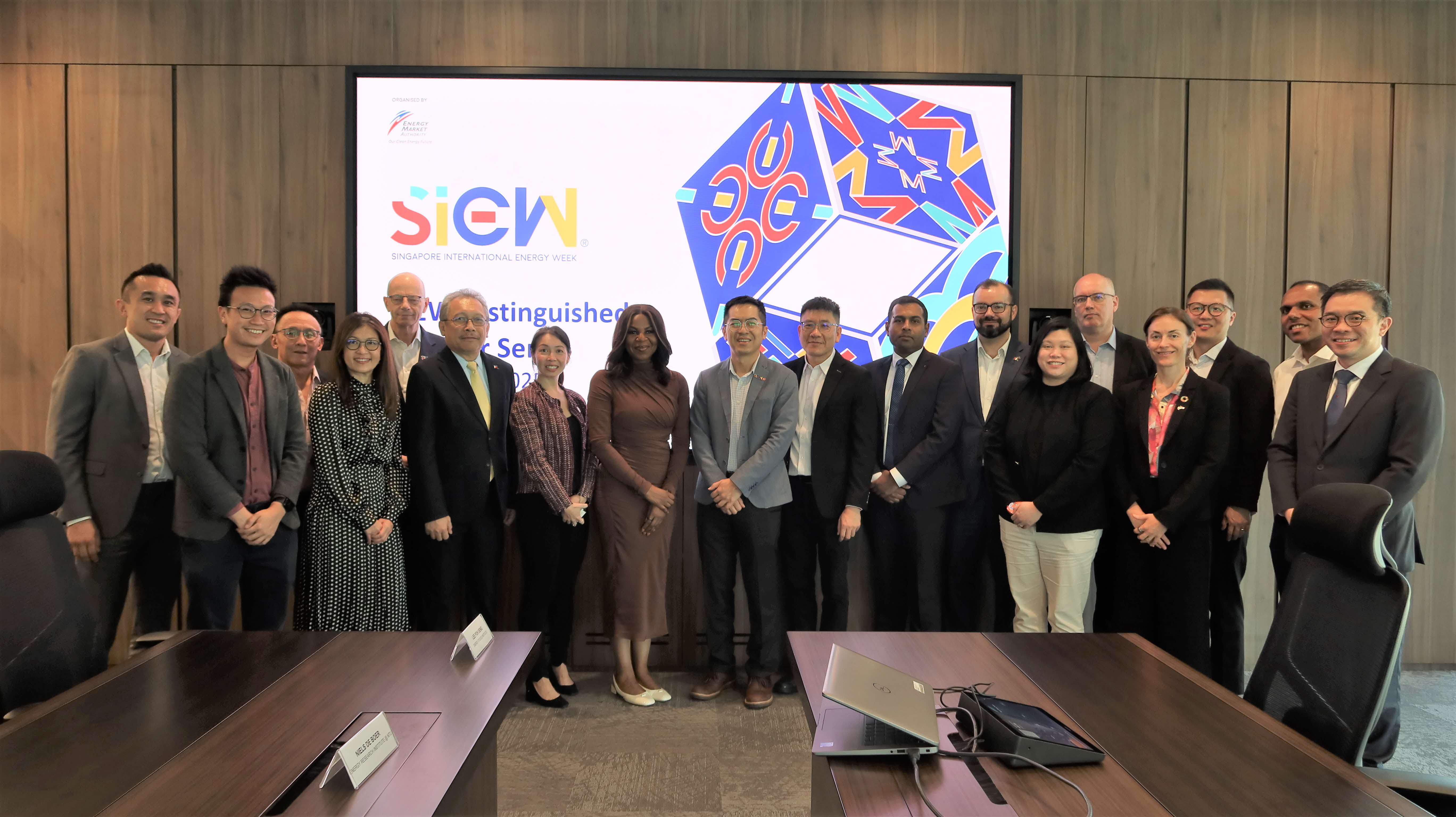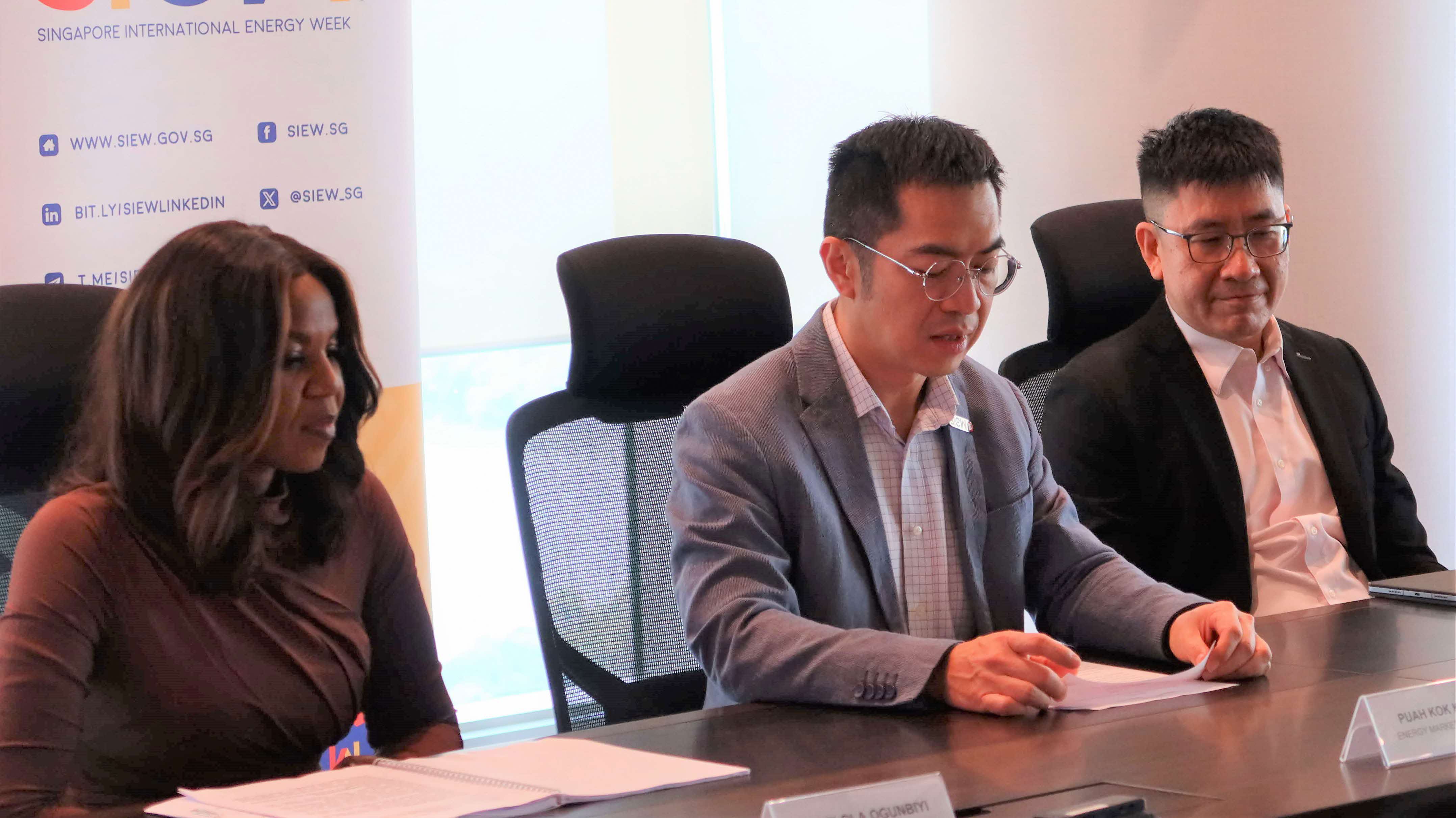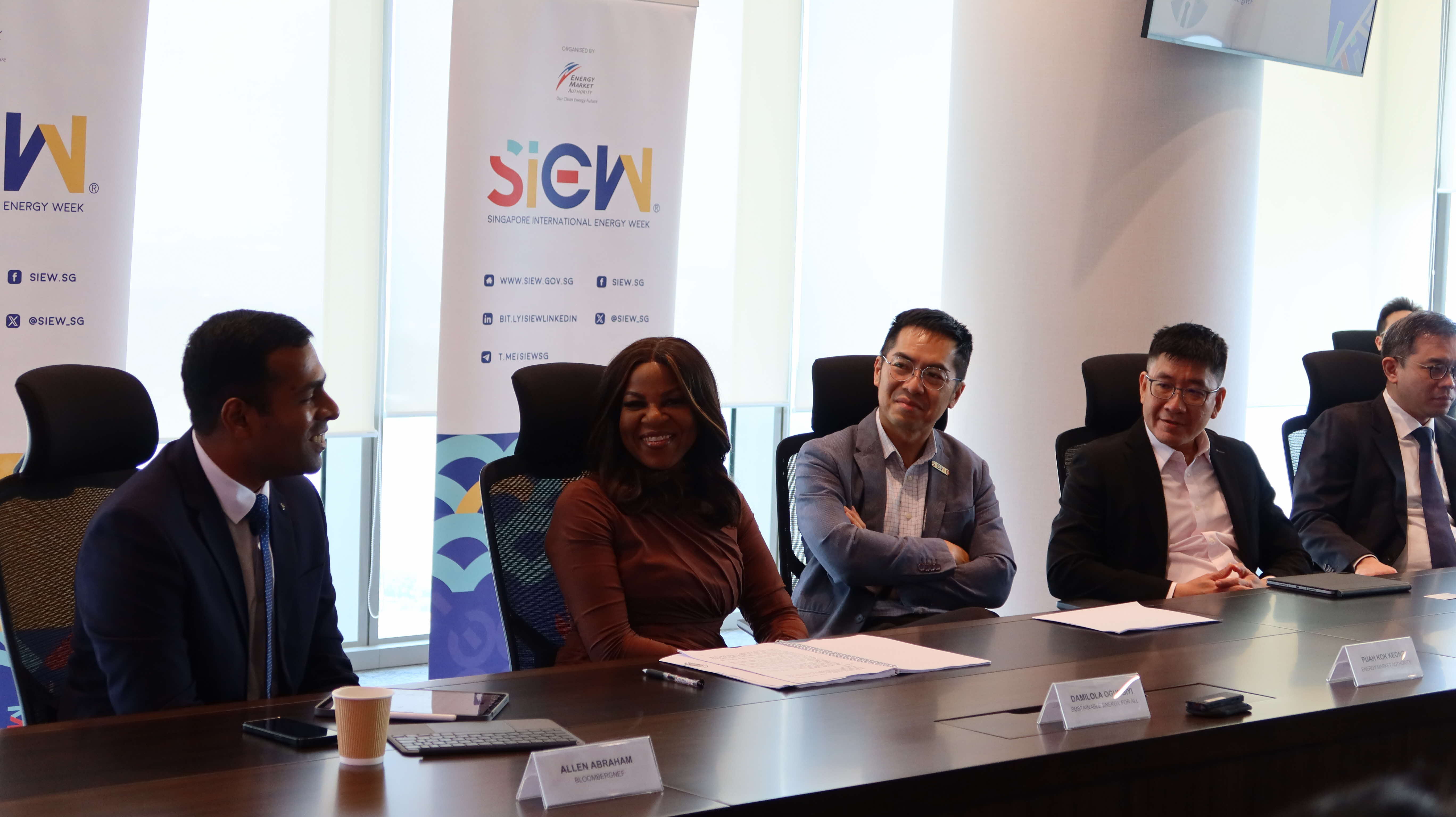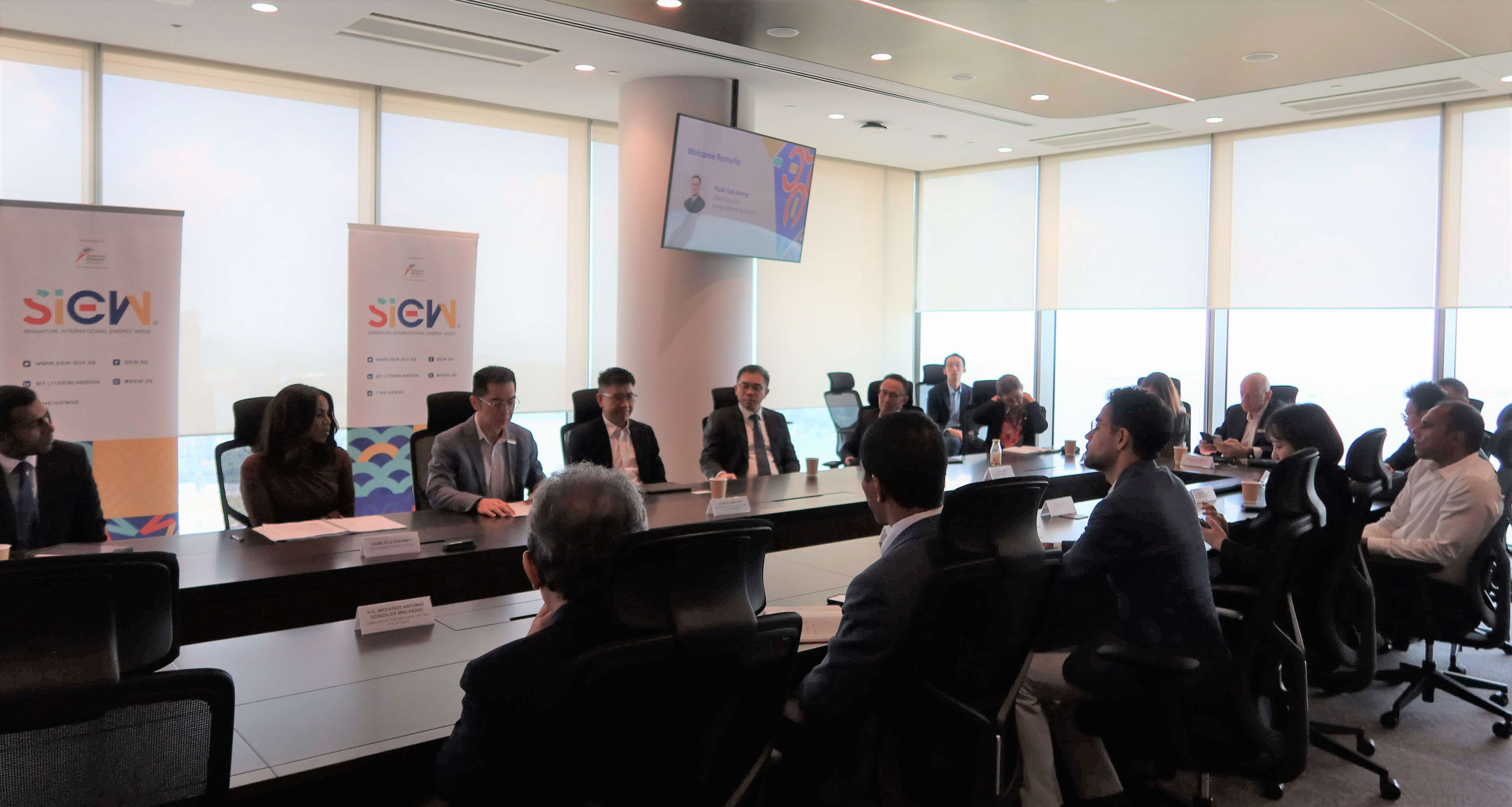
The Energy Market Authority (EMA) launched the SIEW Distinguished Speakers Series to foster energy thought leadership and sustain the dialogue on energy transition beyond the week of SIEW. On 26 August 2025, the Series held its inaugural session featuring Ms Damilola Ogunbiyi, CEO & Special Representative of the UN Secretary-General for Sustainable Energy for All (SEforALL) and Co-Chair of UN-Energy.
Ms Ogunbiyi has played an instrumental role in advancing energy interconnectivity globally, including her success in mobilising over US$1.3 trillion in finance for clean energy projects worldwide. During the session, she discussed the rapid growth of clean energy, the need for inclusive transition plans, financing, and the importance of regional interconnectivity.
Advancing Asia’s clean energy ambitions
In his welcome remarks, Mr Puah Kok Keong, Chief Executive of EMA, underscored the urgency of translating vision into action to build the energy systems of tomorrow. “Energy transition is one of the defining challenges of our time. It calls for practical solutions, strong partnerships, and collective action,” he added.

Reflecting on Singapore’s longstanding partnership with SEforALL since 2011, Mr Puah highlighted growing collaboration at the G20 and ASEAN levels, particularly in capacity building and knowledge sharing.
He also emphasised the critical role of regional power grids in advancing Asia’s clean energy ambitions, citing momentum behind initiatives like the ASEAN Power Grid. Interconnected grids, he explained, are essential to unlocking new markets, attracting investment into renewable energy, and reducing reliance on fossil fuels.
Mr Puah further noted that SEforALL has played a central role in advancing regional interconnectivity in Asia, Africa and Latin America — demonstrating how partnerships can strengthen energy security and resilience at scale.
Bridging the gap between investment and impact
Moderating the session, Mr Allen Abraham, Head of Sustainable Materials at BloombergNEF, set the tone with a reminder of the progress made and gaps in the current energy landscape.

Globally, clean energy investments exceeded US$2 trillion in 2024, according to BloombergNEF data. Yet, these encouraging numbers contrast with the sobering reality that achieving net zero by 2050 may require as much as $8 trillion annually through 2035 — four times the current levels.
Ms Ogunbiyi contextualised these figures by placing Asia at the heart of the global energy transition. The region accounts for 50 per cent of global emissions and is home to some of the most dynamic clean energy innovations. While China and India have accelerated deployment and driven down clean energy project costs, she noted that the market dynamics still differ significantly across markets, and land-constrained countries such as Singapore face unique challenges in scaling renewables.
So, how can Asia close the gap between ambition and implementation moving forward? Ms Ogunbiyi shared the following insights:
Improving energy access at the heart of transition
Ms Ogunbiyi stressed that the clean energy transition must be inclusive and address the needs of the region’s most vulnerable populations. She cited access to clean cooking as an example of uneven progress in the energy transition. An estimated 800 million people in Asia still lack access to clean cooking fuels — a reality that perpetuates deforestation and creates a vicious cycle where communities lacking energy access continue practices that worsen climate challenges. She emphasised that energy access cannot remain a blind spot in transition planning.
Role of regulatory clarity in unlocking clean energy investment
Clear and consistent regulatory frameworks remain a cornerstone of progress. Ms Ogunbiyi highlighted India’s electric vehicle (EV) battery standardisation for electric two-wheelers as an example: by establishing common technical standards, India reduced EV battery costs by 40 per cent and developed a manufacturing ecosystem that now processes 3 million battery swaps daily.
She noted that this example illustrates a broader principle — when industrial and energy policies are aligned, they lower risk, unlock scale, and accelerate adoption. Conversely, fragmented regulatory environments create uncertainty and hinder the development of clean energy projects across borders.
Scaling regional cooperation through small wins
Addressing the challenge of regional integration, Ms Ogunbiyi drew on lessons from African power pools to propose a pragmatic, incremental approach. Rather than waiting for full consensus, she urged ASEAN nations to explore bilateral or trilateral agreements that can demonstrate early success and draw others in.
Ms Ogunbiyi emphasised that this approach not only reduces costs but also enhances the stability of power grids as renewable energy adoption grows. It enables data-driven system optimisation and opens access to clean energy for countries with limited domestic resources. She stressed that cooperation at any scale can be a powerful catalyst for regional transformation.
Rethinking climate finance: from subsidies to self-sustaining markets
On the issue of climate financing, Ms Ogunbiyi cautioned against long-term dependence on concessional financing instruments. While blended finance has delivered meaningful results, such impactful outcomes were only possible after years of regulatory groundwork and capacity building.
Ms Ogunbiyi emphasised that the real challenge is not just deploying capital for the clean energy transition but creating conditions that enable private investments to thrive without subsidies. She noted that development finance institutions must shift their focus towards building sustainable markets where private capital can flow without government guarantees or subsidised terms.
A call for shared learning and practical action
The dialogue closed with a call to share both successes and failures more openly. Ms Ogunbiyi highlighted the importance of learning from use cases in emerging economies, rather than relying solely on the lessons from developed markets that operate under vastly different constraints. She added that technology alone will not deliver the energy transition. Progress will also depend on the people, policies, and partnerships behind it.

The inaugural SIEW Distinguished Speaker Series firmly set the tone for the discussion ahead. As the energy community looks toward SIEW 2025 this October and beyond, the series will continue to serve as a platform for these critical conversations — shaping the leadership, ideas, and actions that will define the region’s energy future.
SIEW 2025 takes place from 27 to 31 October at Marina Bay Sands, Singapore. Register now to enjoy early bird rates.